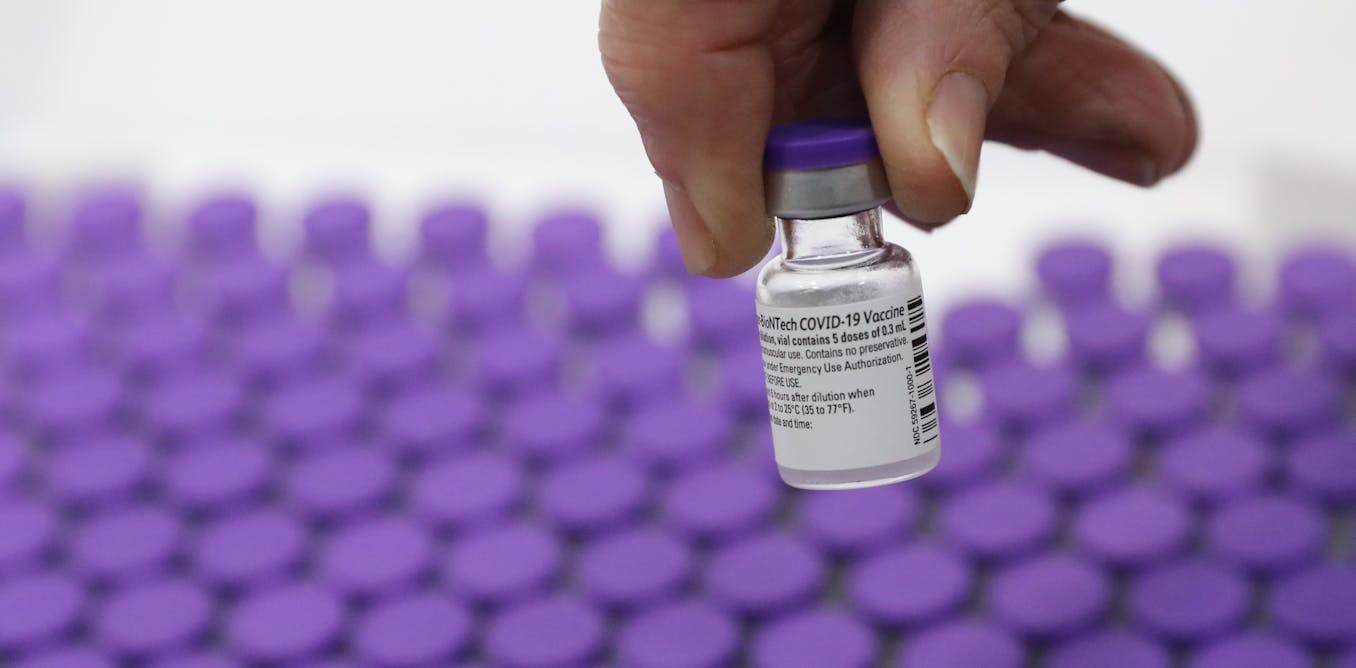You are here
Coronavirus: few vaccines prevent infection – here’s why that’s not a problem
Primary tabs
 Coronavirus: few vaccines prevent infection – here's why that's not a problem Sterilising immunity means that the immune system is able to completely prevent a virus from replicating in your body. Not all vaccines provide this. The Conversation
Coronavirus: few vaccines prevent infection – here's why that's not a problem Sterilising immunity means that the immune system is able to completely prevent a virus from replicating in your body. Not all vaccines provide this. The Conversation accines are a marvel of medicine. Few interventions can claim to have saved as many lives. But it may surprise you to know that not all vaccines provide the same level of protection. Some vaccines stop you getting symptomatic disease, but others stop you getting infected too. The latter is known as “sterilising immunity”. With sterilising immunity, the virus can’t even gain a toehold in the body because the immune system stops the virus entering cells and replicating.
There is a subtle yet important difference between preventing disease and preventing infection. A vaccine that “just” prevents disease might not stop you from transmitting the disease to others – even if you feel fine. But a vaccine that provides sterilising immunity stops the virus in its tracks.
In an ideal world, all vaccines would induce sterilising immunity. In reality, it is actually extremely difficult to produce vaccines that stop virus infection altogether. Most vaccines that are in routine use today do not achieve this. For example, vaccines targeting rotavirus, a common cause of diarrhoea in infants, are only capable of preventing severe disease. But this has still proven invaluable in controlling the virus. In the US, there has been almost 90% fewer cases of rotavirus-associated hospital visits since the vaccine was introduced in 2006. A similar situation occurs with the current poliovirus vaccines, yet there is hope this virus could be eradicated globally.
The first SARS-CoV-2 vaccines to be licensed have been shown to be highly effective at reducing disease. Despite this, we don’t yet know whether these vaccines can induce sterilising immunity. It is expected that data addressing this question will be available from the ongoing vaccine clinical trials soon. Although even if sterilising immunity is induced initially, this may change over time as immune responses wane and viral evolution occurs.
What would a lack of sterilising immunity mean for those vaccinated with the new COVID vaccines? Quite simply it means that if you encounter the virus after vaccination, you may get infected but show no symptoms. This is because your vaccine-induced immune response is not able to stop every virus particle from replicating. ...



Recent Comments